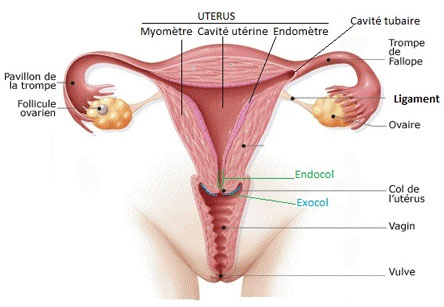Removal of the uterus (hysterectomy)
Hysterectomy or removal of the uterus is a surgical procedure that involves removing all or part of the uterus
Female genitalia

Extraperitoneal caesarean section

Dr. Velemir is one of the ten gynecologists-obstetricians to practice extraperitoneal caesarean section in France. The technique of extraperitoneal cesarean section is still unknown, almost confidential, it has great benefits for moms and their babies. With extraperitoneal caesarean section, the sequelae and the risk of complications are reduced.
Learn more about extraperitoneal caesarean section.
What is a hysterectomy ?
A hysterectomy is a surgical procedure that involves removing all or part of the uterus.
We talk about :
Why should this operation be performed?
The main reasons behind such an intervention are:
What happens during the operation
The procedure can be performed, depending on the case, under general or loco-regional (spinal) anaesthesia.
The procedure can be performed in three ways:
1. Laparoscopic hysterectomy
This is a precise and minimally invasive method with a simple and usually fast post-operative course. The patient can walk and urinate normally on the following day. The patient is generally discharged on the second day after the operation. Dr. Velemir uses this approach when performing a subtotal hysterectomy or in the case of uterus cancer.
2. Vaginal Hysterectomy (or by vaginal route)
This procedure is performed vaginally. The post-operative course is usually simple and fast. The patient can walk and urinate normally the next day. The patient is generally discharged on the second after the operation. Dr. Velemir uses the vaginal route in patients who have already given birth vaginally or who have had a prolapse.
3. Abdominal hysterectomy (or by laparotomy)
In this case, the operation is performed by opening the abdomen, generally horizontally (as in a caesarean section) and sometimes vertically, between the pubis and the navel. Powerful analgesics (derived from morphine) are often necessary during the first 24 hours. A catheter can be left in place in the bladder for 24–48 hours. It is generally possible to discharge the patient as of the fifth post-operative day. Dr. Velemir reserves this approach for very large uteruses or for advanced gynaecological cancers.
What happens after a hysterectomy ?
You are prescribed a work break for a period of 2 to 4 weeks. After you leave the clinic, you will be able to gradually resume your normal daily activities.
Sex and baths should be avoided for a period of four weeks, which is necessary for proper internal healing.
A post-operative visit is carried out within 2 to 4 weeks after surgery.
If you are not a post-menopausal woman before the surgery:
If you are post-menopausal before the surgical intervention:
A hysterectomy does not modify the possibility or quality of sexual intercourse in any case. There is no reason why you should experience side effects such as weight gain or depression, symptoms sometimes wrongly attributed to a hysterectomy.
Are there risks or inconveniences?
Hysterectomy is a common and efficient surgery, and consists of a procedure that is simple in most cases.
During the surgery, the route can first be changed according to the observations made. Opening the abdomen may be necessary if the surgery was scheduled due to natural means or by laparoscopy. Lesions of neighbouring organs may occur in exceptional cases i.e. injuries to the intestines, urinary tract or blood vessels, which require a specific surgical treatment. A blood transfusion may be necessary in the event of severe bleeding,








